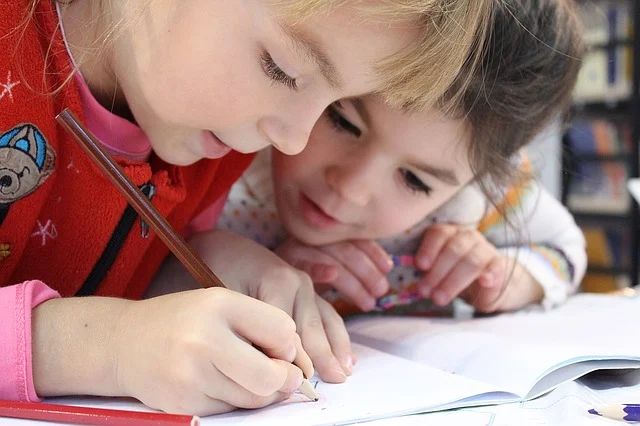The opportunity to get a quality of education, as a basis
for development is a right given to all children, in order to grow and nurture
in tomorrow’s world. Child psychological studies based on extensive research,
can be studied and implemented while educating them, to make sure the young
minds bloom and blossom limitlessly.
Socialization and child development
In sociology, socialization is the process of internalizing
the norms and ideologies of society in order to learn and confirm to the rules
set by the society. It encompasses both learning and teaching and is thus the
means by which social and cultural continuity is attained.
Children hold the power to pave the way towards a
knowledge-based society, filled with enlightened individuals. In order for the change in nations to be
positive, it is essential and worth mentioning that early childhood development
is a key factor in raising children.
Generally, there are five agents of socialization; namely primary,
secondary, developmental, anticipatory and re-socialization. According to UK assignment help websites and researches,
these are extremely important for a child to learn a society’s set of culture
and values.
The nature versus Nurture debate
One of the most heated and widely popular debates between
the studies of biological and social science arises due to their conflicting
views regarding child development and behavior. Scientists believe that the
chemical makeup of an individual’s brain causes them to act a certain way along
with genetics, which mainly builds the physical and emotional characteristics
of an individual.
However, sociologists suggest that the upbringing and
society of an individual are the building blocks of their personality. They
urge that no one is born a ‘criminal’ or a ‘saint’, rather, it is particularly
the environment where they are brought up that molds their personalities a
certain way. Therefore, a child that
grows up in an abusive and distressed environment is keen to be a non-conformist
to the social norms enforced on him/her.
Technological advancements in childhood education
The onset of
increased research on this particular topic has created major emphasis on it. According
to uk assignment help blogs and latest researches, it is ensured that emphasis
on ECD or early childhood development, is now being greatly made by government and private institutions alike, by means of
awareness drives and lowering the cost of education.
ECD classrooms are made highly interactive, to engage the
interest of students involved. Using projectors and other digital media promotes
visual learning, which is believed to be the best fit for young children as it
helps them memorize basic concepts with ease.
The ECD classrooms
The space where a young child is sent to be groomed and developed
at a sensitive stage needs to fulfill some expectations from the parents. Some UK
assignment help websites suggest that classes mainly need to make the child
feel secure, loved and comfortable. Furthermore, recent researches have shown
that the classroom design greatly affects how a child feels in a classroom,
along with the fact that the way they behave in a certain classroom setting
differs from the other.
1. Rules and regulations
An ECD classroom aims to teach the young individuals self
-control by means of class rules and expand their logical thought processes by
participation in various learning- based activities, also teaching about the
importance of task involvement in the process. This also gives them an idea
about confirming to the society’s rules in order to receive positive
reinforcement.
2. Organized space
Some assignment help UK based websites suggest that such a
classroom, with clear divisions and labels helps give an organized look to the
class, making them easily manageable by teachers. A disorganized classroom will
cause the child to wander off and show unruly behavior, reducing child-teacher
interaction time.
3. Play units
This highlights the importance of tailoring the child care
setting, to fit the expectations of the parents and children, for them to grow
and learn. These can be divided on the basis of their complexity and variety,
each with learning goals of their own. Examples of these may include:
·
Swings to play and interact with their peers, to
learn social skills.
·
Table and books that allow them to sit and
explore their interests on various topics, while also increasing their
attention span.
·
Dough table with tools, so that they can work on
their creativity and share ideas as they practically form new shapes and forms.
4.Classroom design
A small and colorful classroom makes the child become more
attached to the environment and also more attentive in learning. Some UK
assignment help bloggers suggest that the attendance of those children with a
more vibrant classroom was observed to bemuch better, compared to those with
dull classroom environments.
Modern research based work evidently shows how important early
childhood development is and so, we should make sure that no child is left
behind in getting an education that gives them the best nurturing opportunity
for a brighter future.

